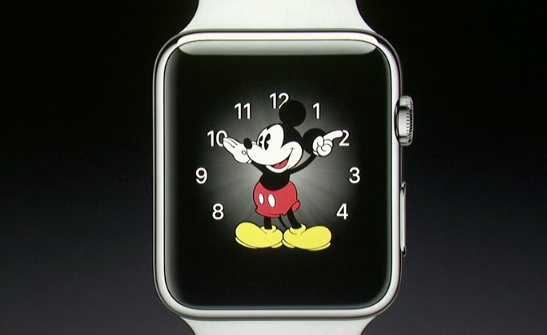I've got a mind to give up living
And go shopping instead
I've got a mind to give up living
And go shopping instead
Pick me up a tombstone
And be pronounced dead
— Variously attributed; performed by the Paul Butterfield
Blues Band
Steve Jobs's last words were said to be, "Oh wow! Oh wow! Oh wow!" Not quite as elegant as Goethe's "More light," but perhaps his first glimpse into the life following death. I don't think he was looking down the tunnel to the Apple Watch.
No doubt, the Apple Watch — which has the world gaga — is capable of wonders, practical and pointless. I haven't bothered to learn all about it. Yours truly (as people used to sign letters), but I won't be yours in Apple blossom time. There seem to be three basic models, keyed to your socio-economic class, and loads of designs. Doubtless there are a billion aps, and it can do everything but spit nickels. Watch Ben-Hur on your wrist!
Throw in a Tesla to your instrumentarium and you're in the Elysian Fields without even bothering to cross over like Steve Jobs.
"The Apple Watch Will Create Its Own Market Based On Emotional Needs," writes a commentator who styles himself Clinically Sound Investor on Seeking Alpha. He's right.
The Apple Watch pre-orders totaled over $600 million. One thing people
can take for granted and Apple doesn't have a problem with is heightened
public awareness. The TV spots, the live demos at Apple Stores since
April 24, as well as Guided Tours online, all have people thinking about
the Watch even before they develop an interest. Once the Watch is out
on the street and people see them on others, if there was thought of a
"lack" before, it will feel more real. ...
The ability to send virtual taps, heartbeats, and drawings through
Digital Touch actively reminds owners, "Great, I have the Watch," for
staying connected to their community. ... For younger users, who grew up in an age where online contact with their
social network is as pervasive as face-to-face time with their friends,
the demand for the Watch may be even greater. The best way to stay
connected is through instant sharing of emotions and ideas, which is
more conveniently done with the Watch's texting and iMessage
capabilities than finding your phone.
In other words, "the Watch" enables people (especially the young, whom many from older generations now emulate) to find virtual meaning in their lives, often without interacting in "meat space."
You can argue that in principle there's nothing about wearing an Apple Watch that differs from the jewelry and decorative clothes that women and men have worn since the beginning of history (and probably before): it's a high-tech version of an aborigine's bone necklace. Right enough, it's human to want to be stylish, and if a gyroscopic sundial could have been made small enough, Egyptians of the XVIII Dynasty might have worn them or endowed their animal-headed gods with them.
I myself used to collect watches of eccentric or unusual appearance. They included a Sekonda whose face noted in microscopic letters, "Made in the U.S.S.R." My timepieces were — admittedly — intended to attract attention and show how hip I was. I still have them but no longer wear a watch, except occasionally on trips, because there are readouts all around on computers, car dashboards, TV screens, even electric ranges.
My watches were cheap, though, and nobody would have assumed that I'd paid any more for one than for a Timex. Style aside, all they did was tell the hour and minute. You even had to adjust them if you went to a different time zone.
There's a different and, to me, distasteful vibe about the Apple Watch. To judge from photos, some of the variations might be visually attractive, but the bragging rights they give the owner cross a line that ought not to be crossed. It's impossible to define where that line is exactly, but it has something to do with the biblical admonition that where your treasure is, there your heart will be also.
Traditional Christianity doesn't much appeal to me, but it deserves credit for ceaseless analysis of human motives and the inner drives that can seize the soul and turn it away from the moral and spiritual. The Seven Deadly Sins are deadly precisely because they are tempting and often pleasurable. If we must derive and then satisfy an "emotional need" from a fancy science-fiction watch, we will deserve what we get.






No comments:
Post a Comment